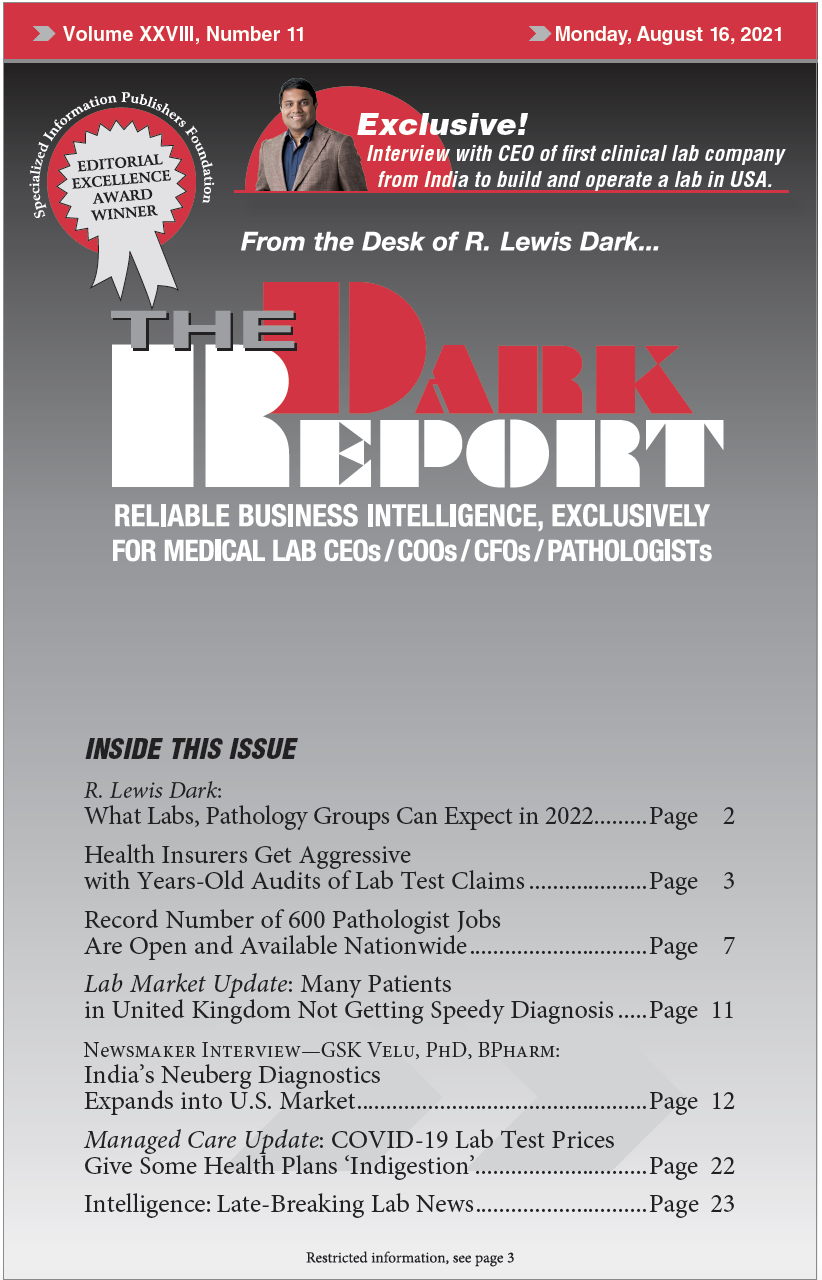RECENT NEWS REPORTS IN THE UNITED KINGDOM indicate that the COVID-19 pandemic has exacerbated the ongoing problem of lengthy delays in diagnosis of patients within the National Health Service (NHS). This is particularly true of delays for patients waiting on results of their cancer tests. Currently, approximately 5.3 million patients are on a waiting list …
Many Patients in United Kingdom Not Getting Speedy Diagnosis Read More »
To access this post, you must purchase The Dark Report.


